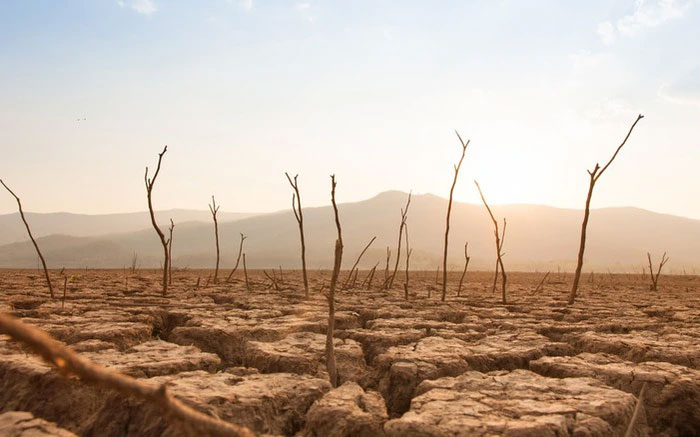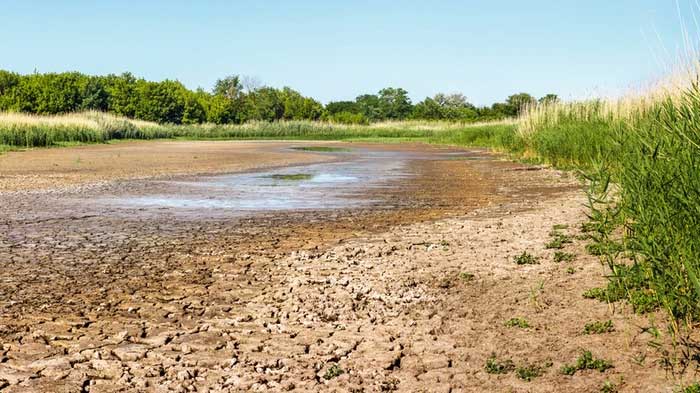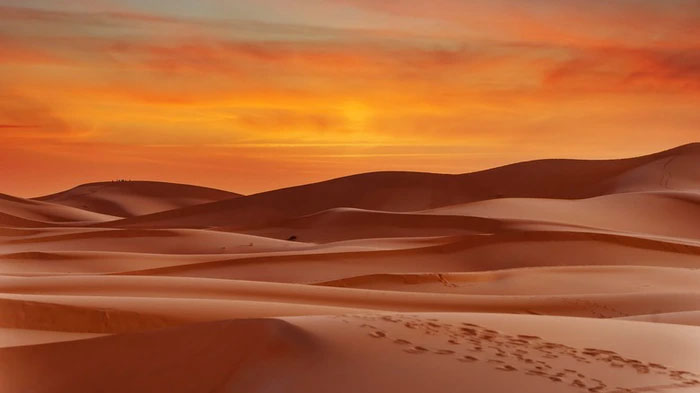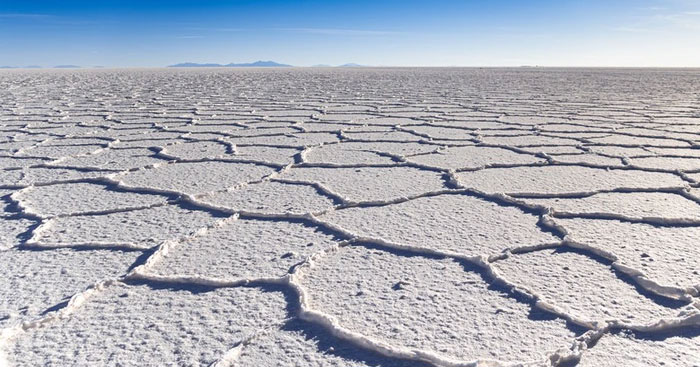Rain is a crucial part of our planet, and Earth truly needs water to survive.
Rain is part of the water cycle, a series of complex processes through which water evaporates into the atmosphere before condensing and falling back to the surface. On average, about 99 cm of rain falls on the Earth’s surface each year – however, in reality, it has never been distributed evenly.
According to the U.S. Bureau of Reclamation, while a large portion of the Earth’s surface is covered by water, only 3% of the total water on Earth is freshwater, and most of this freshwater is located in inaccessible regions. A vast amount of life on Earth, including humanity, relies on just 0.5% of the total water on Earth for survival, and rain is an essential source among them.
An article published in the journal Nature Communications explains how long-term climate change is affecting water availability worldwide through changing weather patterns. Reduced rainfall can have severe impacts on vast areas, but what if, somehow, rain were to stop completely? Would a world without rain quickly become an extremely arid and uninhabitable place?

Reduced rainfall can have severe impacts on vast areas.
Drought and Widespread Desertification?
If rain were to permanently cease falling from the Earth’s sky, the first occurrence would be terrible droughts worldwide. The summer of 2022 provided the world with a taste of how a lack of rain can lead to severe consequences. Regions in Africa faced extreme famine while rivers and reservoirs began to dry up across Europe, East Asia, and North America. As a result, dead fields, yellowing grass, and wildfires became increasingly frequent and severe.
In addition to ecological impacts, drought can exacerbate water scarcity as entire communities struggle to find clean water sources for survival. As UN Water explains, water scarcity has been a problem in many parts of the world, and in a rainless world, that issue would worsen significantly.
Severe droughts could become commonplace by 2050, even if rain continues to fall. Without rain, the situation would quickly turn into a crisis. But on a planet where rain no longer falls, even the worst droughts would only be the beginning of global disasters.
Will Rivers Dry Up?

Rivers and reservoirs are beginning to dry up across Europe, East Asia, and North America.
If rain stops completely, drought will worsen. Very quickly, rivers will begin to dry up, and both human and wildlife populations that depend on them for survival will be severely threatened.
According to a report by The Guardian, Europe has faced its most severe drought in half a millennium, causing even some of the continent’s largest rivers to dry up to the point where they can be crossed on foot in many places. The depletion of rivers has greatly impacted human industry and society, as critical waterways suddenly became non-operational, cutting off supplies.
However, some of the most severe impacts, as explained by The Rivers Trust, are environmental. The lack of water when a river dries up can devastate entire ecosystems while severely degrading the quality of any remaining water sources.
Tropical forests would certainly be affected if the rivers on Earth began to dry up. As Mongabay notes, tropical forests are associated with some of the largest and most famous rivers in the world, such as the Congo, Orinoco, Mekong, and Amazon. If these rivers stop flowing, the entire forests they support will begin to die, and there would be no tropical forests on Earth without rain.
Will Oxygen Levels Decrease?

Oxygen levels in the air would significantly decrease without rain.
If there is no rain, there will be no plants. And without plants, Earth will lack oxygen. As rain disappears, plants will begin to die en masse, and the atmosphere will soon start to feel the effects.
Marine plants on Earth produce between 50% to 80% of the world’s oxygen, while terrestrial plants, primarily tropical forests, produce about 28% (according to National Geographic) – meaning that oxygen levels in the air would significantly decrease without them.
Animals Will Die!

Without rain, animal populations will decline sharply.
As plants begin to wither and die from lack of rainwater, it will lead to a severe food shortage on Earth. As explained by National Geographic, plants are the foundation of the food chain. Known as autotrophs, they are among the few organisms on Earth capable of harvesting raw energy directly in the form of sunlight. Without them, the entire food chain would collapse. Once plants die off, herbivores will also begin to die.
Carnivores can survive on a meat-only diet, but without herbivores to prey on, the populations of carnivores will sharply decline. Some may survive for a considerable time by hunting each other. But extinction is something that is certain to occur.
The Oceans Will Gradually Evaporate!

The oceans on Earth are closely linked to rainfall.
So far, it seems that the oceans would be a safe haven for life in a world without rain. Unfortunately, they will not last forever. NASA notes that the oceans on Earth are closely linked to rainfall. About 86% of global evaporation comes from the oceans, and 78% of rainfall helps replenish them continuously. Without that rainfall, sea levels would begin to drop. According to NASA’s Earth Observatory, about 108,000 cubic miles of water evaporate from the Earth’s oceans each year.
As the water from the oceans continues to evaporate, they will become increasingly saline. As Scientific American points out, many fish species can only tolerate salinity within a narrow range. In other words, if the salinity of the water changes too much from what they naturally live in, fish will begin to die. Eventually, as the oceans continue to dry up and without rainwater to cover them, they will become hyperalkaline.


















































